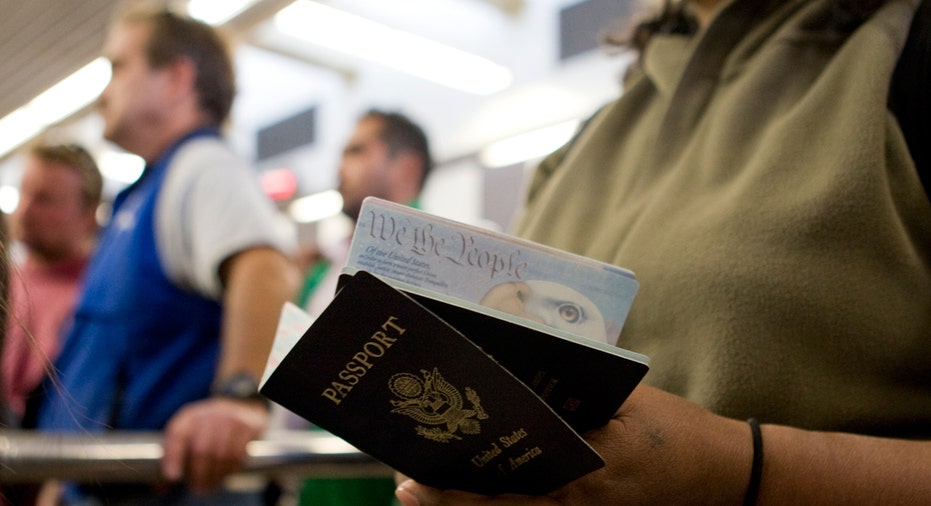IRS Gets New Powers to Revoke Passports

Why did the U.S. Congress and the Obama Administration give the IRS powers to revoke passports in order to collect federal taxes?
Submarined deep in the transportation bill passed by Congress last December was a bold, brand new power given to the IRS to collect taxes. If you have a federal tax debt amounting to $50,000 or more, starting this month, the IRS can get your passport cancelled by sending a message to the State Dept. to do so. That $50,000 includes penalties and interest.
Yes, people should pay what they owe, especially if they want to leave the country. But given the fact that the IRS collection unit has at times not been so state of the art, given the mistakes the IRS has already made in wrongfully emptying bank accounts and seizing assets, does anyone really think it’s okay for unelected bureaucrats to seize passports, blocking a basic freedom, that is freedom of movement?
The new law can be a big pain in the neck, since the federal government is now moving to enact a new identification card to supplant state identification, which are typically drivers’ licenses. That means in the interim travelers could be forced to use their passports at the airport check-in counter even for domestic travel, but they won’t be able to if the IRS yanks them.
The new law, entitled “Revocation or Denial of Passport in Case of Certain Tax Delinquencies,” could mean taxpayers will even be rejected for passports upon renewal.
Meanwhile, the IRS is still seizing bank accounts from small businesses without a warrant if the entrepreneur is making a series of small bank deposits.
The new IRS powers means that now more than ever taxpayers are being walled in. Americans have been renouncing their U.S. citizenship in record numbers, with analysts arguing many taxpayers are doing this because of the reach of the U.S. tax man. The Joint Committee on Taxation says the IRS’s new passport powers are expected to raise $398 million over 10 years. Currently, there are an estimated seven million U.S. citizens living abroad. People who live overseas often use their passports to check into hotels or open bank accounts, among other things. Does anyone think the IRS’s execution of its new passport revocation power will be state of the art?
Already, the IRS is seizing bank accounts of small businesses without warning, much less a warrant. That happened in August 2013 to Carole Hinders, owner of a Mexican restaurant in Arnolds Park in northwest Iowa. Hinders said the IRS seized about $33,000 from her checking account. Even though she was never accused of committing a crime, the IRS was suspicious because she made frequent small deposits. The IRS can seize accounts even though no charges have been filed, much less convictions won.
As with the Hinders’ case, the problem with the new passport revocation law is that the IRS can simply cancel your passport merely by alleging you owe money to the federal government. It doesn’t have to get a judge’s okay or even a court review to do so, and in most cases, a passport will be rescinded simply if a lien has been filed. It also doesn’t give taxpayers the chance to fight the IRS’s decision in court before their passports are yanked, because the IRS operates on a “guilty until proven innocent” mode.
Last September, the Treasury Inspector General for Tax Administration, a federal watchdog unit, reportedly found that the IRS issued 855,000 notices to U.S. citizens living overseas in 2014. However, the watchdogs noted that “IRS data systems aren’t designed to accommodate the different styles of international addresses, which can cause notices to be undeliverable.” It warned that “current IRS processes for addressing international mail issues are ineffective or nonexistent.”



















